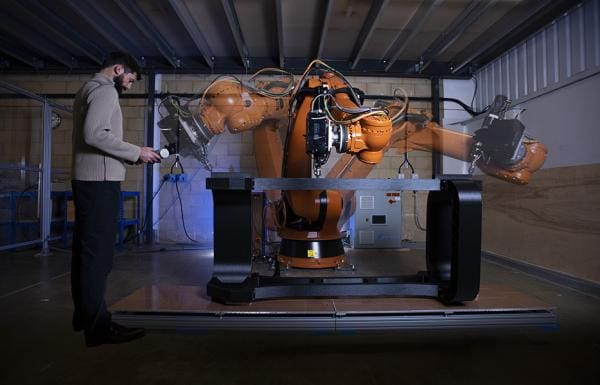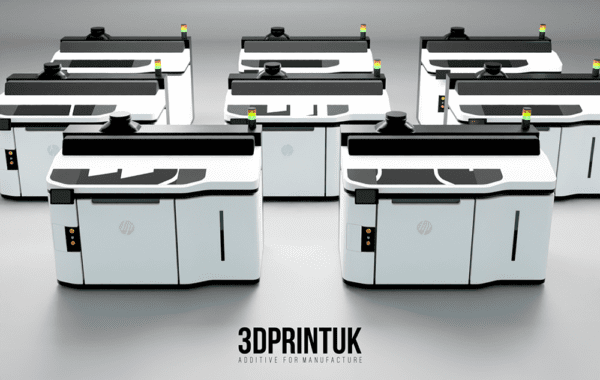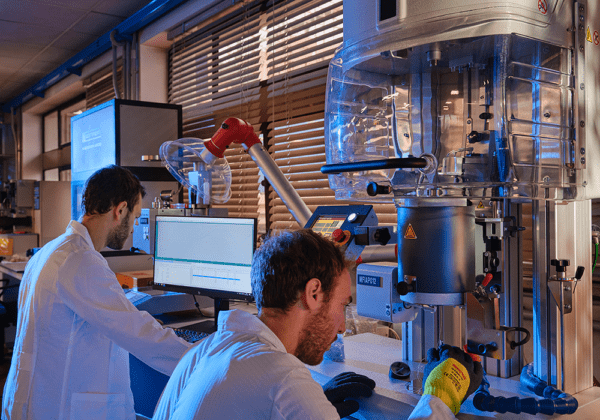
Scaled Turns Plastics Pollution into Environmental Solutions
Home-grown UK innovators, Scaled, are leading the UK in advanced manufacturing. The company, famous for producing the world’s first 3D printed electric car, is turning its expertise to turning industrial waste plastics into functional products.
Scaled specialises in large-scale additive manufacturing, the process of building items one layer at a time. The futuristic technology is an incredibly low-waste manufacturing process, with material only being deposited exactly where it is needed. Scaled mostly cater to the automotive and aerospace industries to produce low-cost, high-value manufacturing aids, often referred to as jigs and fixtures. These items are traditionally produced from metal or plastic blocks, in a process known as machining (or subtractive manufacturing). This means that, much like a sculptor chiseling away at a block of stone, material is removed to reveal the shape of the product. It can be very wasteful, especially when compared to additive manufacturing.
Technical Director Bob Bradley remarked:
“A big decision driver for our 3D printed electric car project was to prove that industrial plastic production could be utilised to build a greener future.”
It was during this project that Scaled began to use more recycled plastics and less virgin material. The constant production of new plastic material contributes heavily to the introduction of plastic waste into the environment. Capturing this waste and using it productively is incredibly important to the global clean-up effort.
Scaled now endeavour to use recycled plastic to produce jigs and fixtures for clients and have proven that it can be a far more cost-effective and environmentally friendly solution.
There are a number of suppliers that Scaled uses to source material to 3D print with. One supplier takes disused nylon surgical gloves and formulates the waste plastic into a reusable state. Another is made from disused and discarded fishing nets, taken from the ocean and fishermen who no longer need them and ensure that the oceans are cleaner and safer as a result.
Managing Director David Speight said:
“We wanted to use more recycled plastics in our production process because we were keenly aware that, as a plastics manufacturer, we can either be a part of the problem or a solution to it. We want to go one step further and become plastic net-negative.”
In aid of this, the company now not only prints with recycled plastic but allows industrial customers to return their used jigs and fixtures at no cost to the customer. This industrial waste plastic is then granulated and re-used to build other functional items for other clients.
The granulated waste plastics are currently formed into large boards, which are used much like wood to create products. An example of the circular nature of Scaled’s products is the fact that these boards, formulated from waste plastic, are actually being utilised in a project with a current client. This client requires 52 structures, each 3m tall and containing 200kg of printed plastic, alongside the recycled boards. In this project alone, it is estimated that the plastic saved by using recycled boards (and recycled printed plastic) is upwards of 40-50 tons.
Whilst the recycled boards are an excellent first step, the end goal for Scaled is to take the returned plastic components, regranulate them and run them back through their printing process.
The process as it exists ensures a fully circular life cycle for Scaled’s products and ensures that the company is actually capturing plastic waste, as opposed to contributing to it.
Scaled will be working with both industry and the public in the future in order to push forward a “Clean Manufacturing” initiative. The goal is for the company to become plastic net-negative by 2025 and help customers do the same.
To find out more about Scaled’s methodology for the clean manufacturing of jigs and fixtures, they have produced a whitepaper that can be accessed here.
Scaled
01793 870181
Website
Email






